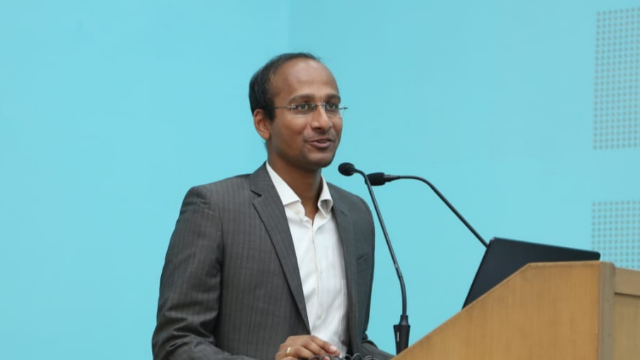COVID-19: An ESSEC Alumnus Reports From India
Is India a ticking bomb? Sriram Raghavan (E13), President of ESSEC Alumni’s India Chapter, explains how his country is taking action against COVID-19’s consequences, in an attempt to avoid a major disaster.
ESSEC Alumni: What is the current situation in India?
Sriram Raghavan: The figure of Covid-19 cases in India was at 71,000 with 48,000 active cases on May 12th. The worst hit regions are the states of Maharashtra, Gujarat, Delhi and Tamil Nadu. India took the decision to institutionalize lockdown measures early when Covid-19 cases were under 900. The first lockdown was announced on March 24th. It was extended until May 3rd after which there has been a phased relaxation of lockdown restrictions.
EA: How does India respond to this health crisis?
S. Raghavan: Indian residents have been called to install a contact tracing app called Aarogya Setu, which has clocked over 90 million downloads. Researchers at IIT Delhi are sequencing bits of the Covid genome and working to make tests more affordable. The Indian Council for Medical Research is conducting randomised controlled clinical trials to assess the safety and efficacy of convalescent plasma therapy in 21 hospitals.
EA: What is the impact of the pandemic on India’s economy?
S. Raghavan: The Government has been under immense pressure from the world of business to open up quickly but has so far resisted taking this route. Markets took a nosedive during Prime Minister Narendra Modi’s first lockdown announcement. Infosys suspended new hirings, promotions and increments. Many other large companies like Reliance and TCS followed suit. Initially the motto was “Jaan hai to Jahaan hai”. Loosely translated from Hindi, Urdu or Arabic, this means “if there is life, then there is the world”. News of job losses, extension of lockdowns and salary cuts eroded the sentiment.
EA: What are the consequences for the population?
S. Raghavan: There have been reports of susceptible low income communities struggling to make ends meet. The Government is being criticized for not doing enough to address the challenges faced by migrant workers. There are some steps being taken at different levels to get the economy back to its feet as swiftly as possible though. Finance Minister Nirmala Sitharaman announced measures like direct transfer of money to bank accounts, free gas cylinders, and food rations.
Of course, civil society is getting involved too. I had the opportunity to work with an initiative called DailyWageWorkers with an alumnus of LSE, Siddhartha Prakash. A collaborative effort between Sonipat, Mumbai and Geneva, the initiative has raised over 20,000 dollars to provide food ration for lower income communities, and is expanding to other cities rapidly.
EA: What are the next steps of India’s response to COVID-19?
S. Raghavan: We are now in a phase termed lockdown 4.0. The details of this phase will be shared in a few days. There is an expectation that decision making on lockdowns will be delegated to state governments and that select train routes will resume. COVID-19 hotspots including the large cities where most ESSEC alumni reside are likely to remain locked down.
Economy-wise, the PM recently announced a relief package of ₹20 lakh crores which is equivalent to 10% of the GDP. Business sentiment definitely stands bolstered after this announcement. Details of this plan are expected to be released by the Finance Minister soon.
EA: How is the post-crisis period shaping up in India?
S. Raghavan: It is a bit too early to say. While the lockdown measures definitely slowed down the spread of the virus, we are yet to see a downward trend in the number of new cases. With densely populated megacities, large floating migrant populations, and a large percentage of the population suffering from hypertension or diabetes, this still has the potential to become a public health disaster.
Nonetheless, the country is coming to a realization that we need to live with the virus and that this is the new normal. Even during the lockdown, there was some news that had resemblance of business as usual. Hindustan Unilever, the Indian subsidiary of Unilever completed a merger with GlaxoSmithKline Consumer Healthcare. Facebook bought a $5.7 billion stake in Reliance Jio.
EA: How does the current situation impact you?
S. Raghavan: My work in the Career Services at O.P. Jindal Global University is one of the most engaging and high-touch roles in this period of crisis. It is like being in a startup phase where official work hours are non-existent and there is little distinction between a weekday and a weekend. In a strange way, it feels like being back in college with a lot of work but with flexibility of doing it at a time of your choosing. It is challenging but nothing compared to what many other sections of the society are undergoing.
EA: What about the local ESSEC community?
S. Raghavan: A number of ESSEC alumni have been taking part in ESSEC APAC & ESSEC Alumni's Business Insights Webinar Series. Amit Kalra (B12) spoke on moving from ambition to vision, and Ranjita Ravi (E13) spoke on sustainability lessons from COVID-19. The City Heads are in touch with the ESSEC Asia-Pacific Chapter Presidents and we are actively addressing alumni requests for support that are being collated in the ESSEC Alumni's COVID-19 solidarity tool.
Interview by Veary Ngy, International Community Manager at ESSEC Alumni, and Louis Armengaud Wurmser (E10), Content Manager at ESSEC Alumni
Want to read more? Join ESSEC Alumni for us to be able to bring other quality contents about the community to you.

Commentaires0
Veuillez vous connecter pour lire ou ajouter un commentaire
Articles suggérés



